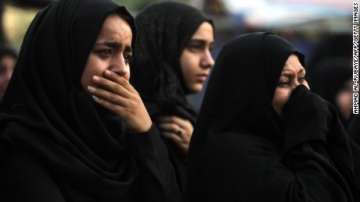A new study published in the Journal Stress and Health says that women are more likely to become anxious due to threats posed by the Islamic State terror group. Researchers from Bar Ilan University in Israel studied about 1,007 Israeli adults and found that being female, having a lower socio-economic status, along with elevated levels of post-traumatic stress disorder (PTSD) symptoms were more related to ISIS anxiety. According to the researchers, the PTD-ISIS relationship was especially pronounced when the mental resources of resilience and optimism were low.
Civil wars often result in atrocities, violence, forced migration and mass fatalities. Exposure to such events can lead to psychological strain and pathology. This pathology includes acute stress reaction, adjustment disorder and post-traumatic stress disorder (PTSD). Of these, PTSD is associated with the highest morbidity and is often underdiagnosed. Post-traumatic stress disorder (PTSD) is a diagnostic entity which is associated with combat or war experiences. Post-Traumatic Stress Disorder is more prevalent in the population which are exposed to traumatic events.
They also found that exposure to Islamic State of Iraq and Syria (ISIS) in the media and having low resilience were also linked to ISIS anxiety.
Resilience is defined mainly as a resource aimed at dealing with a current threat, while optimism is defined as a resource related to future outcomes, they said.
"The findings may have important implications for addressing heightened anxiety in the event of elevated terrorist threats in terms of showing that exposure to ISIS media is detrimental to one's mental health and increases ISIS anxiety beyond one's level of general anxiety," said Yaakov Hoffman from Bar Ilan University.
"Furthermore, the results may suggest that increasing one's optimism and resilience may mitigate the ISIS threat sensitivity, especially in individuals with PTSD symptoms," Hoffman said.

